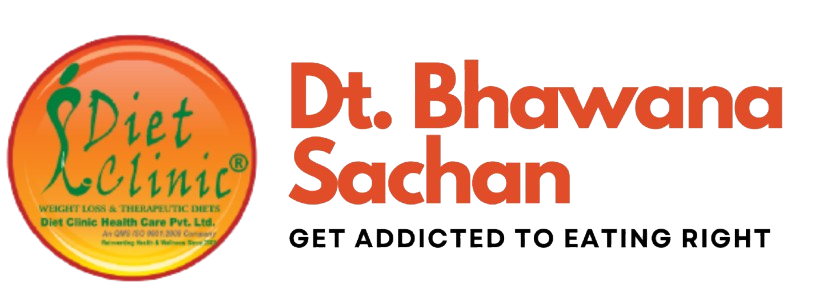
Diet and Depression: A Surprising Link
In today’s fast-paced world, our mental health often takes a backseat to our busy schedules, social pressures, and digital distractions. Among the many factors influencing mental well-being, diet is often underestimated. However, emerging research reveals a compelling and surprising link between what we eat and how we feel emotionally.
Can our meals influence our moods? Can nutrition help prevent or even treat depression? Let’s explore this intriguing connection.

Understanding Depression: More Than Just a Mood
According to the World Health Organization (WHO), over 280 million people worldwide suffer from depression. Despite the availability of therapies and medications, many still struggle to find effective, long-term solutions. That’s where dietary intervention comes into the conversation.
Can Food Really Influence Your Mood?
The phrase “you are what you eat” holds more truth than we imagined. Recent studies in the field of nutritional psychiatry show that food plays a crucial role in our mental well-being. A balanced, nutrient-rich diet not only fuels our bodies but also supports brain health, affecting neurotransmitters, hormones, and gut microbiota — all of which are closely linked to depression.
The Gut-Brain Axis
Perhaps the most exciting discovery in recent years is the gut-brain axis — a bidirectional communication system between the gastrointestinal tract and the brain. The gut is home to trillions of microorganisms that influence digestion, immunity, and mood.
These gut microbes produce neurotransmitters like serotonin, often called the “happy chemical,” which regulates mood, appetite, and sleep. Around 90% of serotonin is produced in the gut, not the brain.
When your gut microbiome is unbalanced — due to a poor diet, stress, or antibiotics — it can lead to inflammation and impaired serotonin production, both of which have been linked to depression.

Diet Patterns and Mental Health: What Science Says
1. The Mediterranean Diet: A Natural Mood Booster
2. Western Diet: A Recipe for Mood Disorders
In contrast, the Western diet, high in processed foods, refined sugars, trans fats, and red meats, has been consistently linked to higher rates of depression and anxiety. Such foods promote inflammation and insulin resistance and lack the essential nutrients needed for brain function.
A study published in the American Journal of Psychiatry found that adolescents who consumed more junk food were more likely to develop depression in early adulthood.
Nutrients That Help Fight Depression
Certain nutrients play an especially vital role in protecting against or managing depression:
1. Omega-3 Fatty Acids
Found in fatty fish (salmon, mackerel, sardines), walnuts, and flaxseeds, omega-3s help build brain cell membranes and regulate neurotransmitters.
Research insight: Omega-3 supplements have shown promise as an adjunct therapy for major depressive disorder, particularly EPA (eicosapentaenoic acid).
2. B Vitamins (especially B6, B12, and Folate)
These vitamins support neurotransmitter synthesis. Low levels of folate and B12 have been linked to depressive symptoms, particularly in older adults.
Sources: Leafy greens, eggs, beans, liver, and fortified cereals.
3. Magnesium
This essential mineral helps regulate the stress-response system. Deficiency is common and has been associated with symptoms of anxiety and depression.
Sources: Pumpkin seeds, almonds, dark chocolate, spinach.
4. Vitamin D
Low levels of vitamin D, often due to lack of sunlight or poor diet, are correlated with depression. Supplementation may improve mood in deficient individuals.
Sources: Sunlight exposure, fortified dairy products, egg yolks.
5. Zinc
Zinc is involved in brain function and the regulation of neurotransmitters like dopamine. A deficiency has been observed in individuals with depression.
Sources: Chickpeas, oysters, beef, nuts.

Sugar, Caffeine, and Mood: The Hidden Saboteurs
It’s not just about what you should eat — what to avoid is equally important.
Excess Sugar
Consuming sugary snacks and drinks causes blood sugar spikes and crashes, which can lead to irritability, mood swings, and fatigue. Chronic sugar intake is associated with increased risk of depression, especially in women.
Caffeine
While moderate caffeine (like from green tea or black coffee) may improve alertness and mood, excessive caffeine intake can increase anxiety, disturb sleep, and worsen depressive symptoms in sensitive individuals.

Emotional Eating vs. Nutritional Healing
Depression can change eating behaviors drastically. Some people may eat less, while others resort to emotional eating, reaching for comfort foods like ice cream or chips.
These “comfort foods” provide temporary pleasure but often contribute to a cycle of poor nutrition, guilt, and worsened depression. Breaking this cycle by focusing on foods that nourish rather than numb can be a game-changer.
Real-Life Stories and Testimonials
How to Eat for a Happier Brain: Practical Tips
When Diet Isn’t Enough: Seek Professional Help
Final Thoughts: Feed Your Mind Right
The connection between diet and depression is no longer a fringe theory. As science continues to validate what many cultures have long believed — that food is medicine — we are now empowered with actionable knowledge.
A healthy diet doesn’t just keep your heart and body strong; it can also nourish your mind and emotions. So the next time you sit down to a meal, remember: you’re feeding your brain, too.
Remember: Small changes in your plate today can lead to big changes in your peace of mind tomorrow

